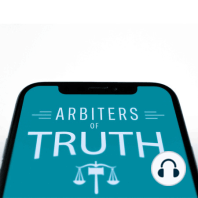53 min listen

The Good, the Bad and the Ugly of Section 230 Reform
The Good, the Bad and the Ugly of Section 230 Reform
ratings:
Length:
56 minutes
Released:
Feb 3, 2022
Format:
Podcast episode
Description
On this episode of Arbiters of Truth, the Lawfare Podcast’s miniseries on our online information ecosystem, Evelyn Douek and Quinta Jurecic spoke with Daphne Keller, the director of the Program on Platform Regulation at Stanford's Cyber Policy Center and an expert on Section 230 of the Communications Decency Act, the statute that shields internet platforms from civil liability for third-party content on their websites. The statute has been criticized by both Democrats and Republicans, and both President Trump and President Biden separately called for its repeal. So what should we expect in terms of potential revision of 230 during the current Congress? What does Daphne think about the various proposals on the table? And how is it that so many proposals to reform 230 would be foiled by that pesky First Amendment? Our GDPR privacy policy was updated on August 8, 2022. Visit acast.com/privacy for more information.
Released:
Feb 3, 2022
Format:
Podcast episode
Titles in the series (100)
Emma Llansó on the Most Important Content Moderation Database You’ve Never Heard Of by Arbiters of Truth